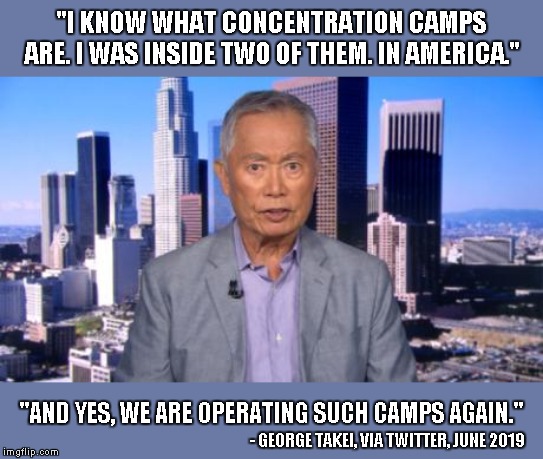
"But there another group of people who I admire equally. But this government didn't think that I was American enough and so, by gum, I went out there to show them what kind of American I am. And after the ceremony, I asked one of them, 'How were you able to do what you did when this government treated you and your family so shabbily?' And he said, 'Well, George, when I was a kid, I began the school day every morning with the Pledge of Allegiance to the flag, and I meant every word of it. "I was invited to the White House when members of the 442nd were finally given the Medal of Honor, the highest military recognition that the nation can grant. On what drove Japanese-Americans to enlist when their families were in internment camps Takei joined NPR's Scott Simon to discuss his experience of internment and the importance of remembering the darker chapters of American history. Takei plays two characters in the show: Ojii-San, the grandfather of a family in an internment camp, and Sam Kimura, a 77-year-old former internee whose story is told from the present day. Previews of the show are set to begin Sept.

Now, Takei's childhood experience living in camps in Arkansas and California has inspired a new musical called Allegiance.

citizens of Japanese descent who were forced to move to internment camps. After that 1941 attack, he and his family were among the tens of thousands of U.S. The actor was born in Los Angeles to a Japanese-American family just a few years before Japan's bombing of Pearl Harbor. But his latest project aims to bring a different kind of story to the stage, one with personal and historical resonance.


 0 kommentar(er)
0 kommentar(er)
